Thought Experiment: Breaking the Gridlock on Free Will
A more useful framing for the debate on free will, and how to compute our way towards an answer.
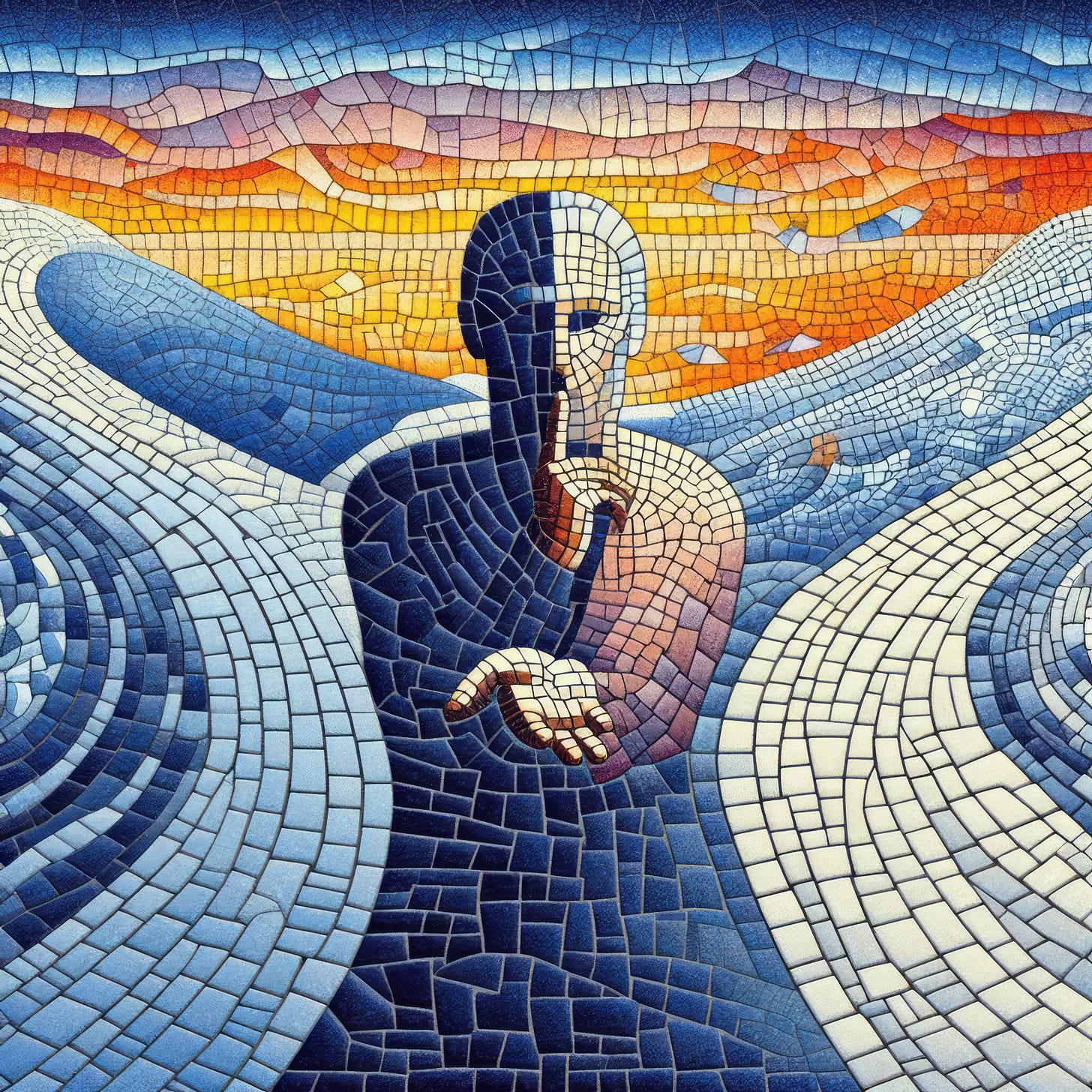
Intro
Your life is complex, beautiful, and dreadful, isn’t it?
If you let that sentence hang a bit more than it should - if you focus on it - it’s likely you’ll begin to see a web of associations coming into view. Maybe you have flashes of those pit-like days: scattered with moments that threatened your survival as a human being in body or mind - spirit, even. Maybe you can appreciate the incredible coincidence that you’re choosing to read these words at all within everything else this life demands of you. Maybe you remember how you feel in those fleeting bubbles of existence that actually make it worthwhile to endure all the rest.
Of course, it turns out life is both easier and harder for both of us to navigate in our own, very particular ways. Tolstoy was correct about much more than family: every human is unhappy in their own way. Necessarily, we’re all also happy in our own way.
Maybe you’re a white, male, cisgender European, like me. Maybe you’re not. And I know this is a crude way of putting things, but if you think about what you know is true, you can see how this difference encases vast swaths of current human experience - in whatever shape or form.1
Expand your thought a little more, and you can even see how different your experience of life is different from that of everyone else. There’s no-one like you, quite literally. Your life is different from your lover’s, or your daughter’s, or your neighbor’s in varying dimensions. What matters about this scale of dimensions is that virtually no-one exists within it at exactly the same point you do, but you.
However close we are to someone, however much we wish to bridge the gap between ourselves and others, we’re mostly limited to the closeness allowed by a hug.
Even twins, human beings that are essentially copies of each other at a genetic level, show differences between them. Even if raised within what looks the same environment, they’ll differ in their lived experience within that environment; because they are different consciousnesses, even small differences within their environment have long-term, compounding impacts.2 They each have their individual lives, and each makes different decisions within it, even if at least a source of their behavior and character - that which is genetically influenced, or maybe you can even say determined, up to a point - is neutralized. Free will wins out against that - and then some.
In our world and our discussion surrounding free will lays the assumption (which implies acceptance) that what separates you from every other person is your ability to make different choices from anyone else.
You choose and are chosen when you enter a relationship with someone - and no-one else. You choose to write about free will - and nothing else. You choose down to the type of coffee you like - that bitter, biting espresso, that slightly gummied-up rush of sugar, or the cloudier taste of a Mokka.
But both you and me are much more granular about everything we do - it’s not just coffee we constantly make decisions about.3 Us having free-will is akin to saying that yes, we are responsible for what path we take at each bifurcation: we’re responsible because we could have made a different choice.
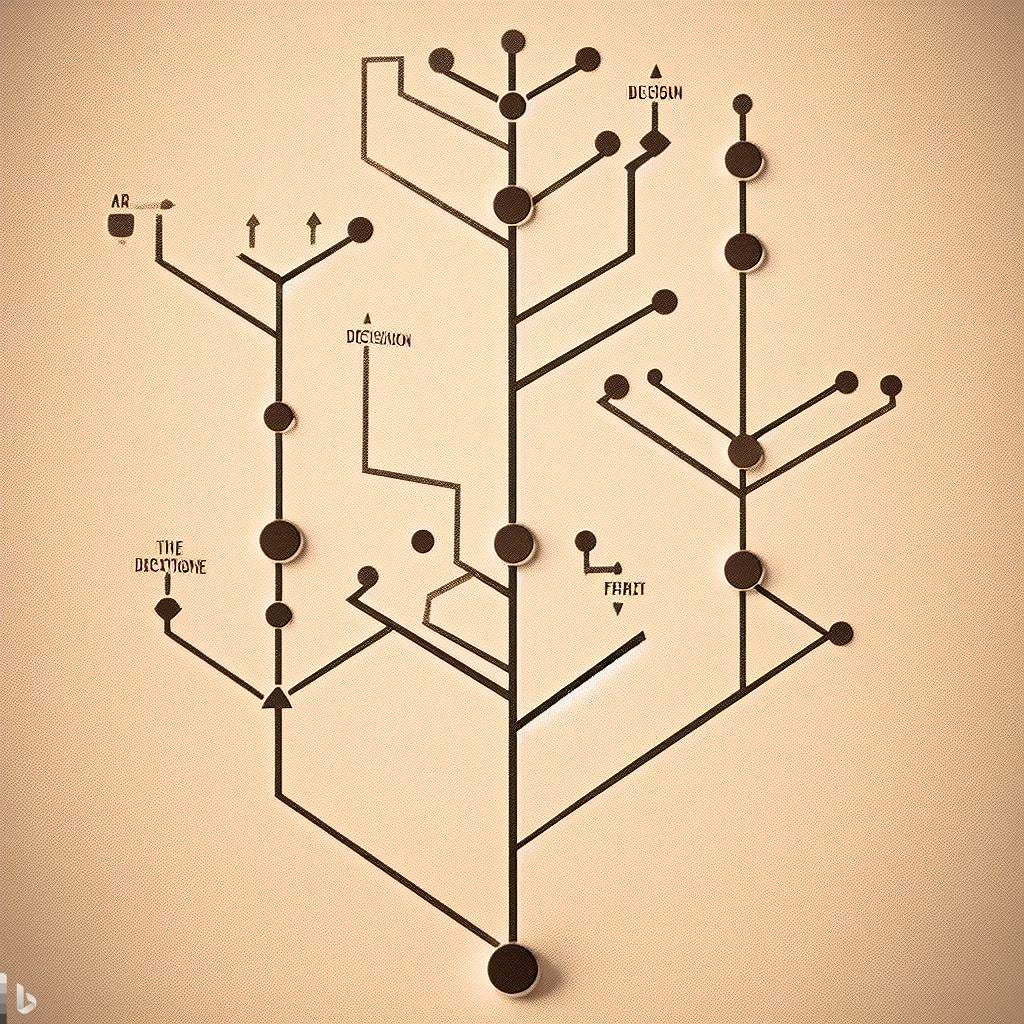
Every day, you lose out on a number of experiences because of what you choose to do - take the car to work and you miss out on a number of things (which could be personally framed as positive or negative). But this way of thinking - one that favors opportunity cost and FOMO over the actual and the real - is costly. It’s costly because it leads your focus towards what you decided not to do, instead of focusing on what you did decide to do.
Because while it’s true that you miss out on some experiences when you choose to commute by car instead of by train (observing social life, specific landscapes, the ability to write an essay on free will, or read a book), you also experience other positive elements (the calm and comfort of a relatively controlled environment, specific landscapes cast to newly-discovered songs, the pleasure of driving).
One thing that has been important to me as a human is understanding that you can frame decisions so that they aren’t focused on what you’re missing out on. It’s about accepting your decision to not go after what you feel you’re missing out on. If you accept that you decided not to do something, then you must also accept that you decided to do something - even if that something sometimes means doing nothing at all.
Therapy, uh?
This article aims to look into the concepts of free will and determinism, most of all, and in the end proposes a digital thought experiment towards solving the question of whether or not we do have free will. This entire article is an attempt to narratively develop and express possible frameworks we can adopt while thinking about these and other concepts.
We touch upon the connection between our choices, Robert M. Pirsig’s notions of Quality and patterns, our consciousness, and our identity; on how both your presence and your absence impact the world; on how free will is a question asked in the wrong way; and other things.
As we’ve both been exploring the world And laying out the framework and learnings we use to explore it at the same time, it may be useful to refer to the Index to help navigate this controlled-runaway of a train of thought a little more comfortably.
Choice as the Basis of Free Will
According to free will, choices - actions that impact reality - are what make you who you are. But it is also true that the mere act of existing - of occupying your space in the tapestry of life - is enough to change the web of choices around you. And from those first-level changes come second-level ones, and third and so forth; human relationship (individuals in communication) is a game of dominoes, in a way.
This also explains the impact that people leave behind with their work - humans like Claude Shannon and Nicola Tesla, Newton and Orwell and Ursula K. LeGuin: pretty much any human whose name is bigger than themselves, whose contribution is somehow both visible and above the average4. It’s a tragedy to think of the number of above the average contributions that never make it to the visible stage. Or those that never materialize because someone’s had their unique human potential strangled out of existence too soon.5
At the same time, we must personally be able to answer the question of where we think the ultimate truth lies: if you believe that your existence depends on your impact, on how actively you shape reality around you, then you are in a constant state of rush; a marathon-being in constant pursuit of the next slice of paradise. Your actions are given a fundamental drive to survive in order to increase this impact; your individual pattern fights to cross the distance between origin and destination while fighting off anything that threatens its design in a non-constructive way.
And yet, you could also frame this as saying that you impact reality whether you try to actively participate in it or not.
The Impact of Absence in a Complex System
Another way of looking at the Universe - those tunnels of dark matter illuminated by language we discussed here - acknowledges your presence in it as much more than just the impact of your actions. Because as we fundamentally know, we don’t need to act within the real world in order to have impact on ours or others’ lives. Any person who is quoted, anywhere, has a power - a presence in the scale of life - that’s bigger than of those who don’t, merely stemming through how they influence behavior.6
It’s the same principle that applies to absent parents or estranged loved ones: life flows on around the gaping hole of their absence, and both impacts and is impacted by it. Every single person is a pattern within the great tapestry of human interaction where we are woven into and, environment and other shapes permitting, choose to weave ourselves into continuously new forms.
This is why humanity (you, and me) is a complex system - it’s incredibly difficult to know the extent of changes following the removal of a piece of the collective. Because every person weaves reality in its own peculiar way, with its own variable number and strength of connections to others, you can’t quite simply put the human back within the void he should be occupying, and hope that its relationships (in the broader sense) remain the same. Beings have gravity - like cosmic dancers, they bend the tapestry of life around them.
The Loom of Life
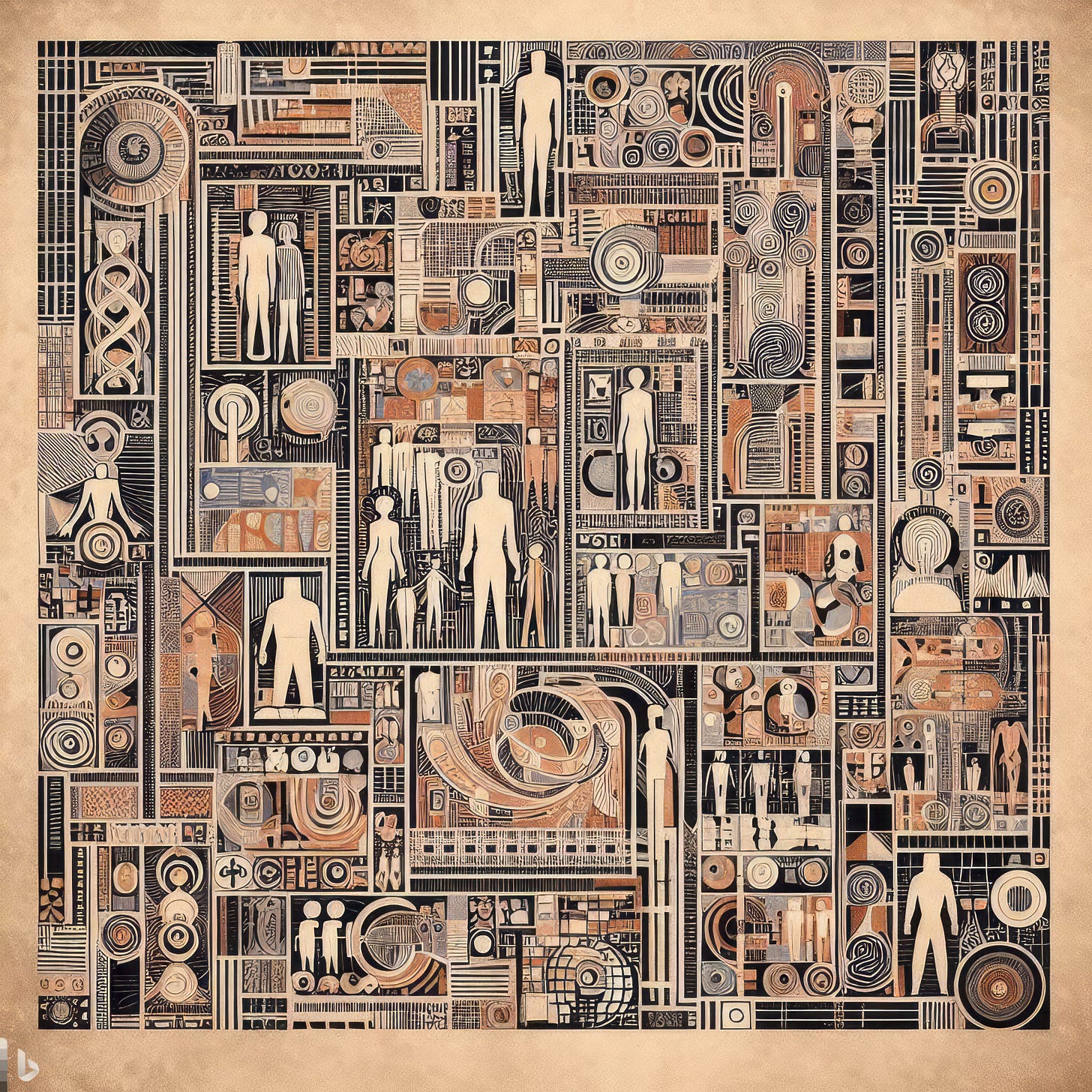
At this point, we’ve made it clear that both action and inaction, presence and absence provoke changes in the tapestry of human (well, universal) interaction. How we personally choose to navigate the game of life - where we choose to spend our time or energy on - is impactful of others, whether you exist in a determinist scenario or not.7
At the same time, we’ve just reinforced how valuable human life is, at least in this sense: if we want to expand the range of possibly positive choices and interactions that lead to human growth, maximizing the ability to choose seems to be the aim. This aim should be tempered with the possibility of reaching the very human state of informational or decisional overload - too much of a good thing really is, generally, bad for you.
One way of framing free will is saying that the aim is to strike a balance between the maximum available meaningful choices that you can have and those that you can constructively integrate. From this, it emerges that through both presence and absence, action and inaction, through choice, each of us is both a designer and a design within the tapestry of life.
Hopefully, our patterns are such that we embellish the threads of one another: individual patterns playfully colliding with others with just enough force to provoke adaptive growth.
But what happens in a world where we don’t decide anything? A world where we’re essentially following pre-determined outcomes based on the initial conditions of our coming into this life? What if you couldn’t help but decide your life in such a way that the path you’re on today is exactly the one that you had to be on?
What if you don’t impose your space within the tapestry, and instead just flow throughout the space that others leave out for you?
What if you couldn’t change anything?
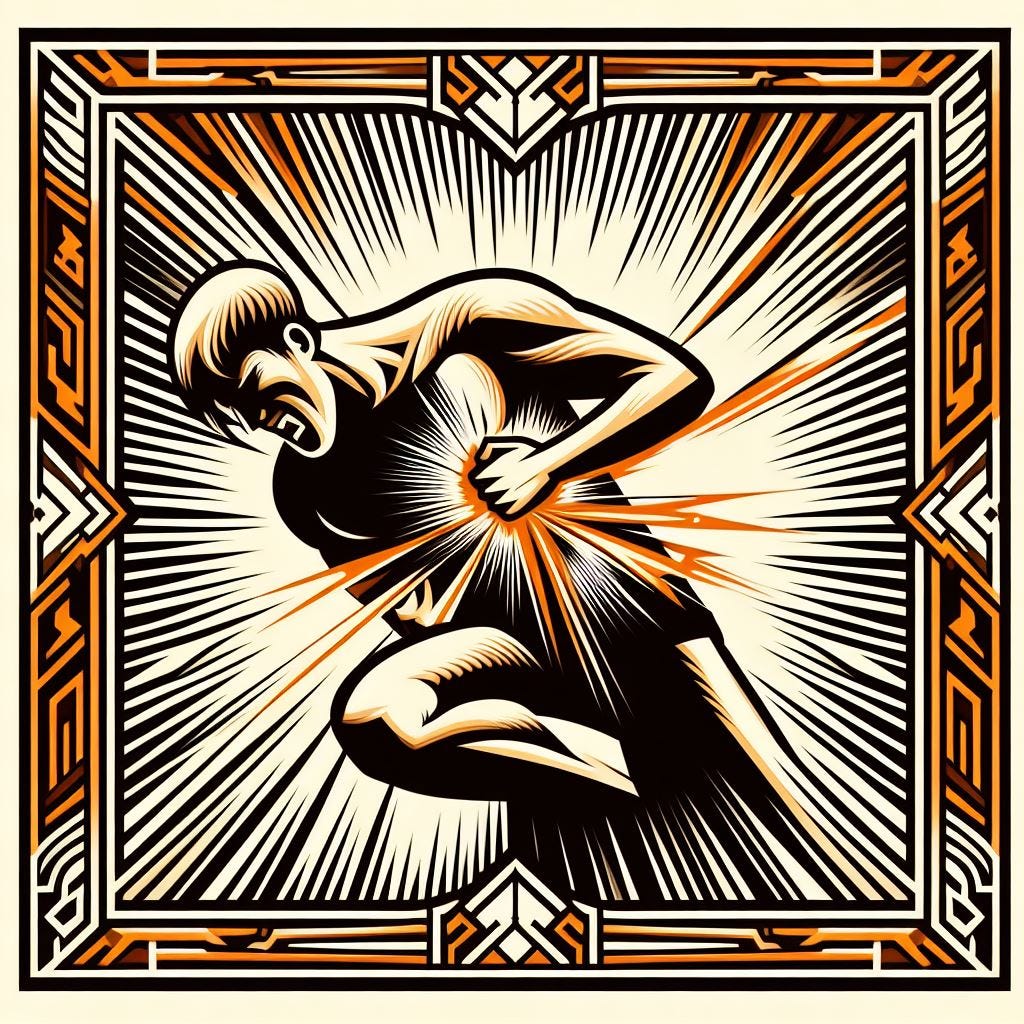
These are some heavy concepts we’re discussing here; it’s okay to feel the need to relax and move away. Perhaps leave a comment, considering your current thoughts on the matter?
Maybe comment on this, get another coffee, and read on? I’m assuming, of course, this is your equivalent of a Sunday morning. But it might be interesting to look at what emerges now and what you end up thinking about later on.
On Freedom, Navigation, and Will
Thinking about free will was unfortunately turned back into a relatively nuclear topic as I wrote this article (a positive for me; I am now allowing myself to write while not trying to keep apace with the true rhythm of the world). As I tried to will myself into finishing my article on free will, the book “Determined: A Science of Life Without Free Will” by Robert Sapolsky emerged, bringing the Determinist viewpoint back into the spotlight.8
This (the debate, not the book) is a distraction among what has become a morally-polluted conflict. Today, the matter of whether human beings have or don’t have “free will” has been weaponized left and right as the means to pursue an ideological agenda that isn’t related to the fundamental question itself, but uses it as a cudgel to advance other ideological viewpoints.
Free will did it to itself, some might say, due to its self-importance in that it acts as one of the support pillars for our legal system. This moral, valuative interpretation - that the measure of blame doesn’t rest solely on impact, but on how much of a measured, informed, personal decision it was at the time of action - is of course vulnerable to a worldview that basically says “I was determined to act in this manner. I did not make a decision. I carry no guilt. And thus, I deserve no punishment”.
In a way, I don’t feel this discussion has particular merit - I don’t think the question “do we have free will” can even be a useful one. Just think about it: the question “Do we have free will?” is itself built on an incredibly poor choice of words, one that clouds any attempts at understanding the concept itself. Let’s see:
The definition of “Free”, to be free to, means the absence of limitation, the inexistence of constraints.
The definition of “Will” means action, and action implies choice between various possibilities - in itself, a self-imposed constraint to opt for one option to the detriment of all others.
The definition of “Free Will” means “the ability to decide what to do independently of any outside influence”. Of course, the issue with this particular definition being that determinism leverages both outside and inside forces - present and past - as irresistible vectors of action - of an inescapable choice.
We’ve now reached a perspective - a suspicion - through which these pieces don’t fit completely correctly: how bits of these concepts overlap and conflict with one another. The matter of “free will” is never truly a matter of freedom, because our decisions necessarily happen within a system of relationship to others.
Following along with the aid of Pirsig’s Metaphysics of Quality, this relationship of the self both with itself and in relation to others can be described as one that happens across three distinct fields, or meta-patterns of existence.
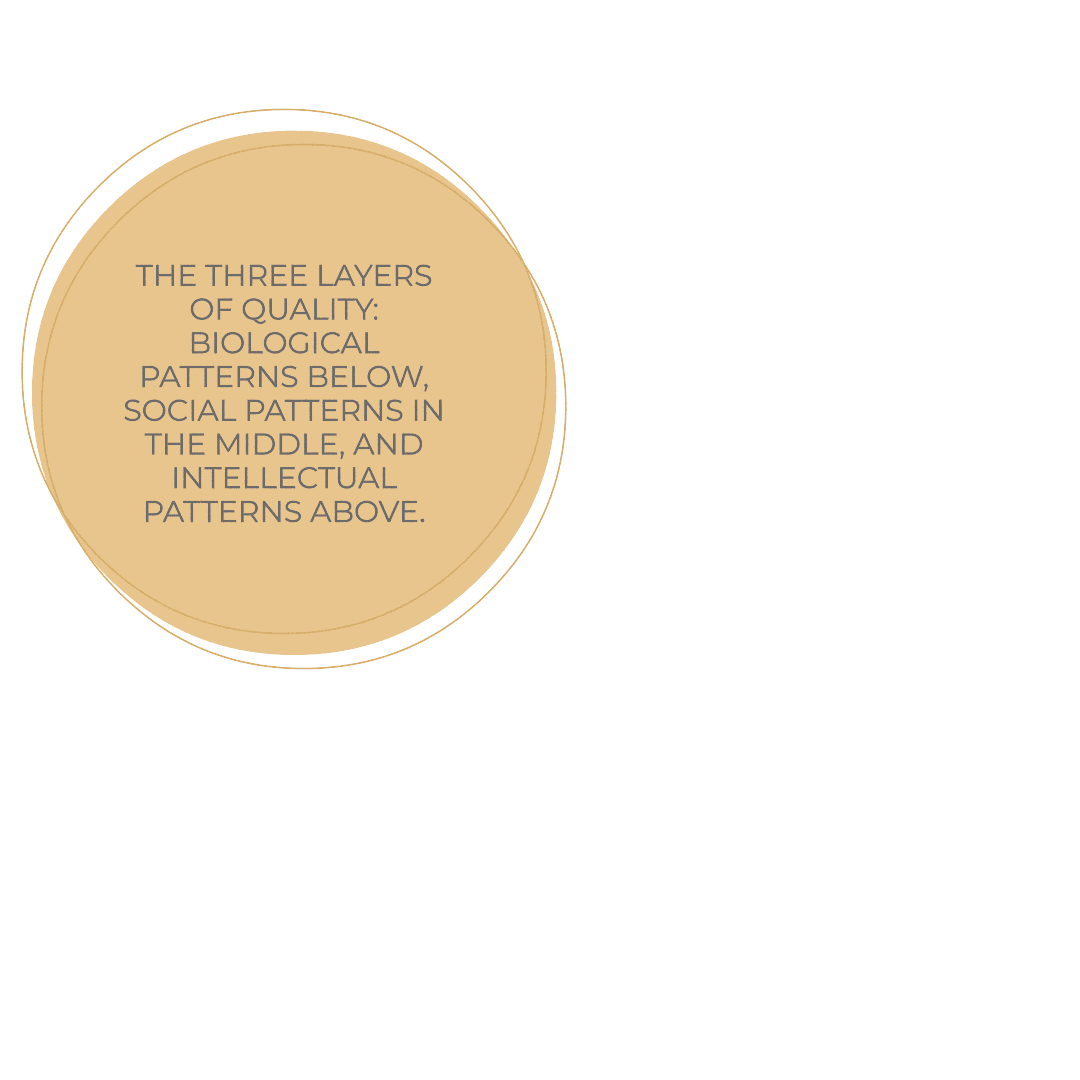
The first level is that of the Biological pattern, limited by our physical form and what it both can do and can’t avoid doing.9
The second field is the Social pattern, which corresponds to the general or local human cultures and is essentially the book of accepted behaviors, meanings and framework used to (civilizationally and individually) navigate the world.
The third field is the one of the Intellectual pattern; one that results, I suspect, from our ability to freely associate different bits and pieces of information within the real world into another, previously inexistent structure, leveraging it towards a useful end or purpose.10 It’s about understanding what patterns exist and finding useful ways of explaining them, and fitting them together.11
What all these planes of analysis suggest is that there will naturally and always exist a limitation towards what anyone can be at any given point in their lives, because we are ultimately constrained at all three levels by the variety and depth of our network effects - existential, geographical, cultural, social… human, which naturally limit the range of available options within the bulk of what’s truly, abstractedly possible (remember the European male argument).
It would always seem, then, that what people practice aren’t acts of freedom; but acts of will. It is an act of “will” to navigate a maze, to choose among a list of possible options you have limited control over other than well, going with the general flow.
And believing there are such forces doesn’t require a belief in Determinism, only understanding that we are all fighting to exert our space in the tapestry of life.
Ultimately, will implies action against an opposing force, and is the very human manifestation of something like Newton’s Third Law - that every action is met with an equal and opposite reaction. In this sense, to make a choice - to will and navigate the maze - is an act of victory over the constraints around us.12
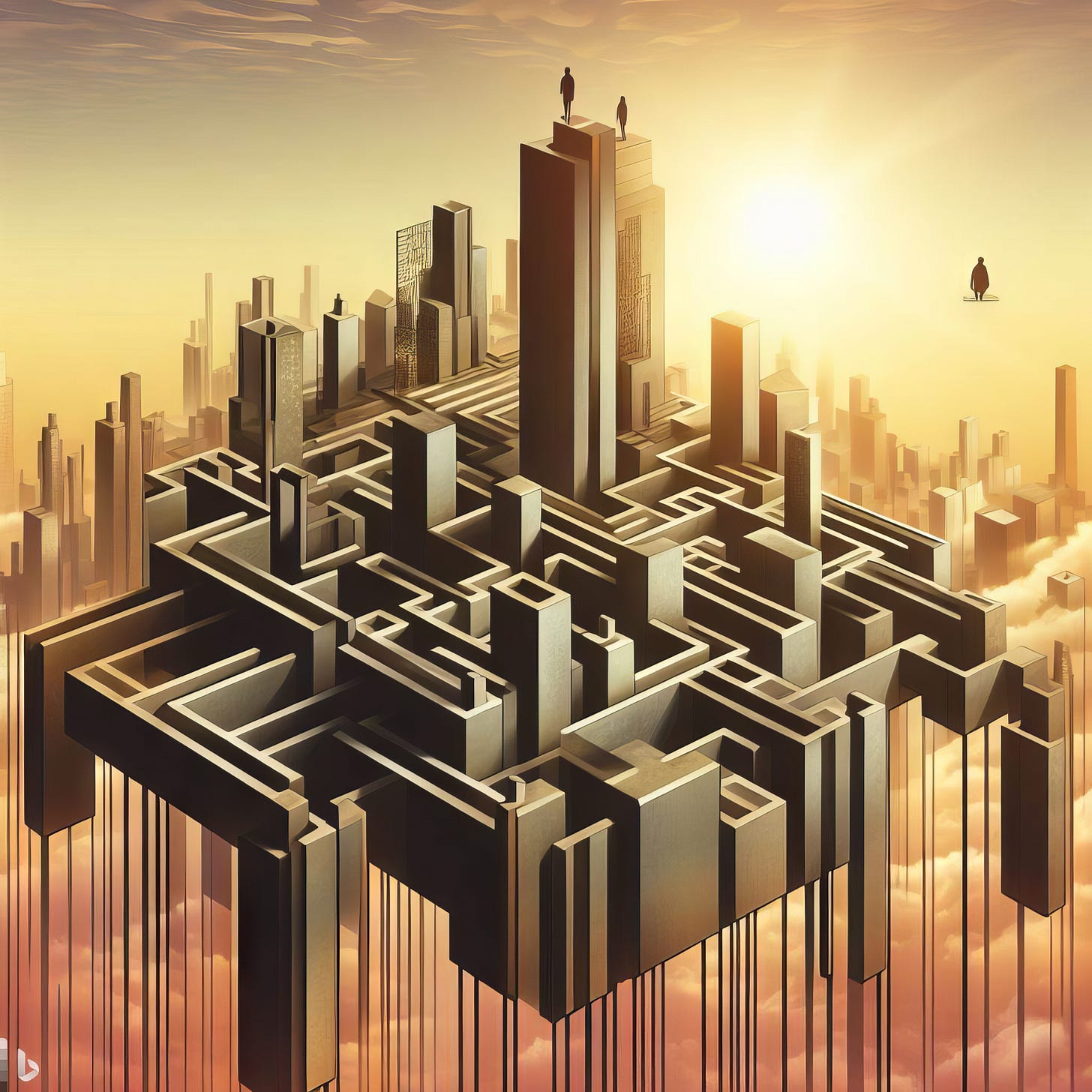
If it were a matter of freedom, the maze simply wouldn’t be there, and our growth throughout the tapestry would be limitless and boundless. What would be there is absence - the lifting up of its walls, bifurcations, and one-way streets - and thus a number of options tending to infinity.
From this, we can maybe agree that including the word “free” in the discussion about “will” is akin to saying that the maze isn’t there as we turn yet another curve in what is very clearly one. So perhaps what we should actually be discussing is will - the assumption of the human ability to navigate the limited list of choices our life provides us, and exerting a measure of control on the decision tree.
Determinism once again ruins our “will” party by painting itself as the understanding that every action and inaction you might take is a result of preceding events and stimuli - an unavoidable playout of the flux of life. As a result, you’re not so much a designer of the thread nor a navigator of the maze: you don’t weave the tapestry of life in your own way, and you don’t choose how to navigate the maze. You’re the imprint of action, not action itself. Whatever you decide, and whether you fill your owed space within the tapestry or not, is placed outside of your control. Your space will be occupied, and you will occupy other spaces - whatever that means, and however the final shape turns out to be.13
In our decision tree, it’s as if only one choice was actually possible among all others: those have been censored and limited by the occurrence of preceding and concurrent events.
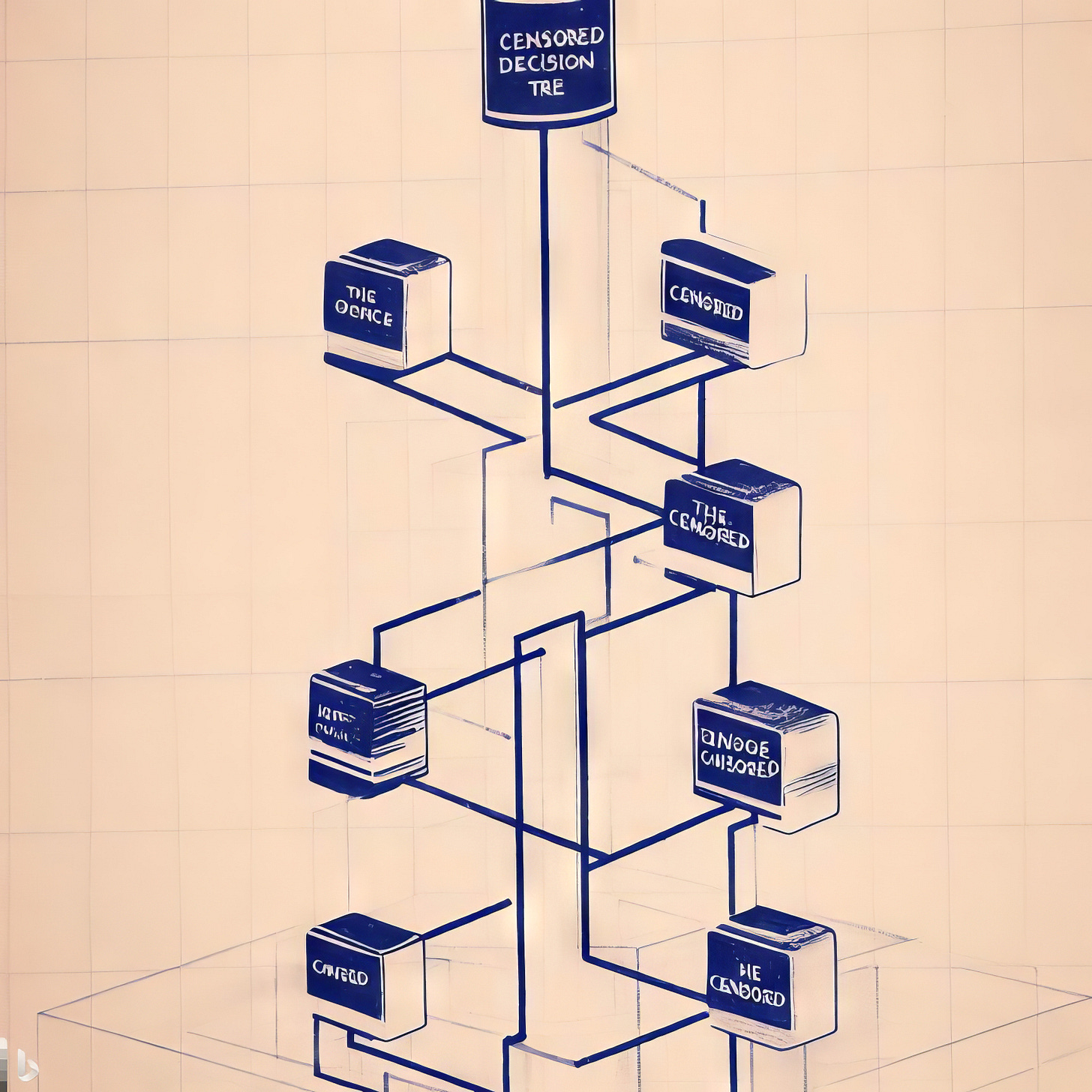
Some useful ways of framing this is saying that determinism relates to how the other objects of the tapestry essentially constrain you in such a way that you cannot avoid but flowing through the tapestry according to the path you have available.
But perhaps a more useful way of framing the debate around whether we have will or not is around whether a copy of you - everything you are at this moment, including a result of your lived experience, a perfect biological and/or electromagnetic copy of your consciousness, would make different decisions from your own within the exact same environment.
The question of whether we do have individual will is exactly the same as asking whether a copy of you could make a different decision in exactly the same situation as you. To that, the deterministic view of will says “not today”: if Determinism is correct, and there is no escape from identical circumstances, your copy would be unable to act in any way other than the one you did. So long, individual will.
What this means is that if you were to rewind the cassette tape of your life for, say, two hours ago, and rewrite it without being aware of the change, you would do and say and think exactly the same things all over again, always, forever, and without fail.
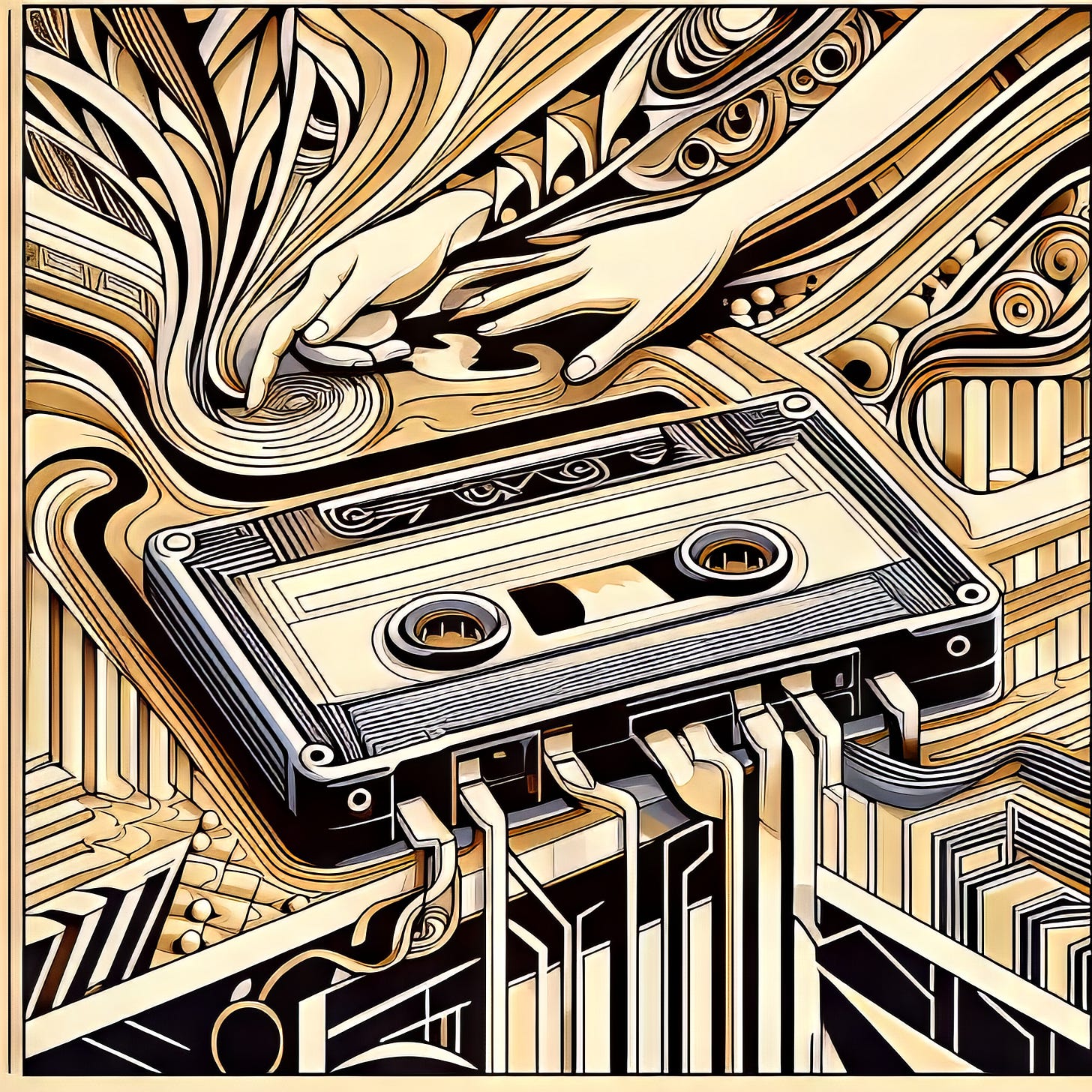
A loop. A fatal error in our experience of being. Because to have individual will is to be able to choose differently within the same circumstances. To consciously direct our actions towards a result that we choose. It’s akin to navigating the maze and choosing the way, instead of seeing the way being chosen. It’s the difference between playing the game and being the in-game character.14
Another way of framing it is within the context of being able to have a perfect copy of someone’s consciousness. This thought is grounded on the allowance that consciousness is indeed reducible to the human brain’s neuronal activity, where action potentials (energy differences) between neurons act as the essential unit of information of brain activity.15 Is is, at least as far as I can see, compatible with Integrated Information Theory. While it may not be clear what road we would pursue towards attaining this capability, it seems reasonable to assume that given enough time, we’ll be happy to copy and past an entire consciousness - especially if human consciousness does prove to be a sequential, information-processing entity (notice the decision not to use machine as an adjective).
Thought Experiment: Determining Whether our Universe is Deterministic
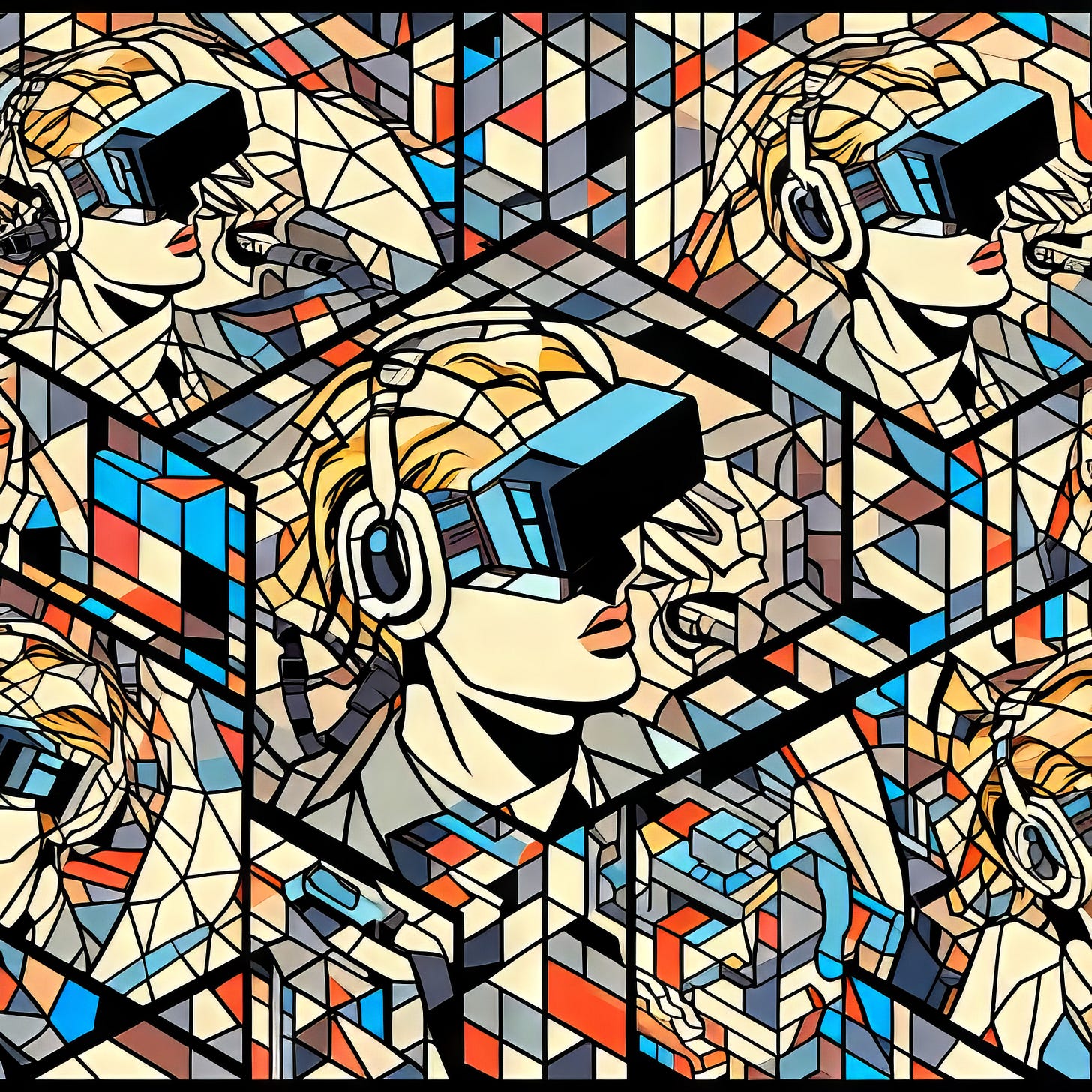
Based on everything that came before, the thought experiment can be laid out as this:
First, you copy a person - whatever that means. You fully copy the extent of its being, its spirit and its substance (if you’re a dualist), in whatever complete description could be had to describe it. You solve the mind-body problem, and reach what is known as an engram - consciousness16, digitized. You reach a point where this chip is, for all intents and purposes, a disembodied copy of an actual human being.
Then, you make sure that you have the ability to make N perfectly digitized copies of the same conscious experience. You now have N times the consciousness of the same disembodied, copied human consciousness.
You then make sure that the engram can be activated at the rates required for conscious experience. You also make sure that there is absolutely no variance within the simulation itself. We should remember that the ability to fine-tune a system so that it gives out correct answers 100% of the time irrespective of external or internal fluctuations is indeed possible - this is the pure basis of computation-based math. It’s also true of what’s going on in our era of Noisy Intermediate Stage Quantum computing and the eternal search for accuracy.
When you admit this, you see that it’s only a matter of time until systems as complex as these copied consciences could be realistically run. Naturally, making N copies running alongside N identical systems allows you to keep a control group: you can start introducing different levels of environmental variance and explore how that impacts behavior as well.17
Then you just let each of those N identical, conscious agents in to their own N identical, deterministic, virtual environment.
Remember that each virtual environment and its occurrences must be identical - everything is code, and thus perfectly predictable - except for the identical agents operating within them. Each agent has the same consciously-experienced environmental stimuli as the other. Look at this as if the simulation adapted itself to what the user is doing, in such a way that it allows deviance from the predetermined code, so long as it’s caused by the agent - the initiative to diverge.
Individual will is the wildcard we want to observe in this perfectly deterministic world. And this world doesn’t even need to be as complex as you would expect: today’s virtual technology can already create very passable simulations of complex systems (videogames) in ways that provoke immersion. And remember that a human consciousness that would be a copy of you or me would be able to react even to a simulation that’s merely a white room with you at the center of it. It can be made exceedingly cheap, in a relative, computing-requirements manner of speaking, even without resorting to modern solutions such as FOV, AI-based frame generation, and dynamic levels of quality: simulations that granulate the level of detail, depth and realism according to where the character focuses its attention on, allowing for adequate load balancing within the computer itself.
The question then is: do these conscious copies of a human being carry their lives differently in this world filled with conscious-looking lines of pre-determined code? Do they make different choices when faced with a deterministic environment?
This could play out in these ways:
Possibility One: Each N copy behaves in exactly the same way as all others. Watching one program run is essentially the same as watching another - it’s like having two monitors showing the same camera feed. If this happens within tolerance (remember we have the fallback of N copies to determine whether our results are accurate across the board), then it is true that a conscious experience within a fully pre-determined environment (software) becomes a determined experience itself. In conclusion, individual will is an illusion - a grasping at the comfort of control where there is none to reach.
Possibility Two: Controlling for all errors, at least some of the N copies behave in distinct ways. This would be pretty easy to observe, as all it would require would be a very-obvious-even-if-minute-shift of the code at one point. By keeping the program running across time, we could also observe (indirectly) how these deviations happened, in what context (and because it’s a simulation, we can see both the internal and external processes), and what could have motivated it. This would prove the notion of free will, in that the same agent operating in a constrained environment is still able to make a meaningful choice - of navigating the maze, of diverging and expanding across the tapestry of life.
We would then also like to observe whether all copies diverge in a number of limited or varied paths - understanding whether we are looking at an expansion or a contraction of choices, or if divergences provoked by acts of will do indeed lead to an endless array of possible events as small changes compound into increasingly different outcomes.
Perhaps having the human source of the copied consciousness play the same simulation as its virtual copies and observing its behavior would also provide valuable insights, perhaps not.
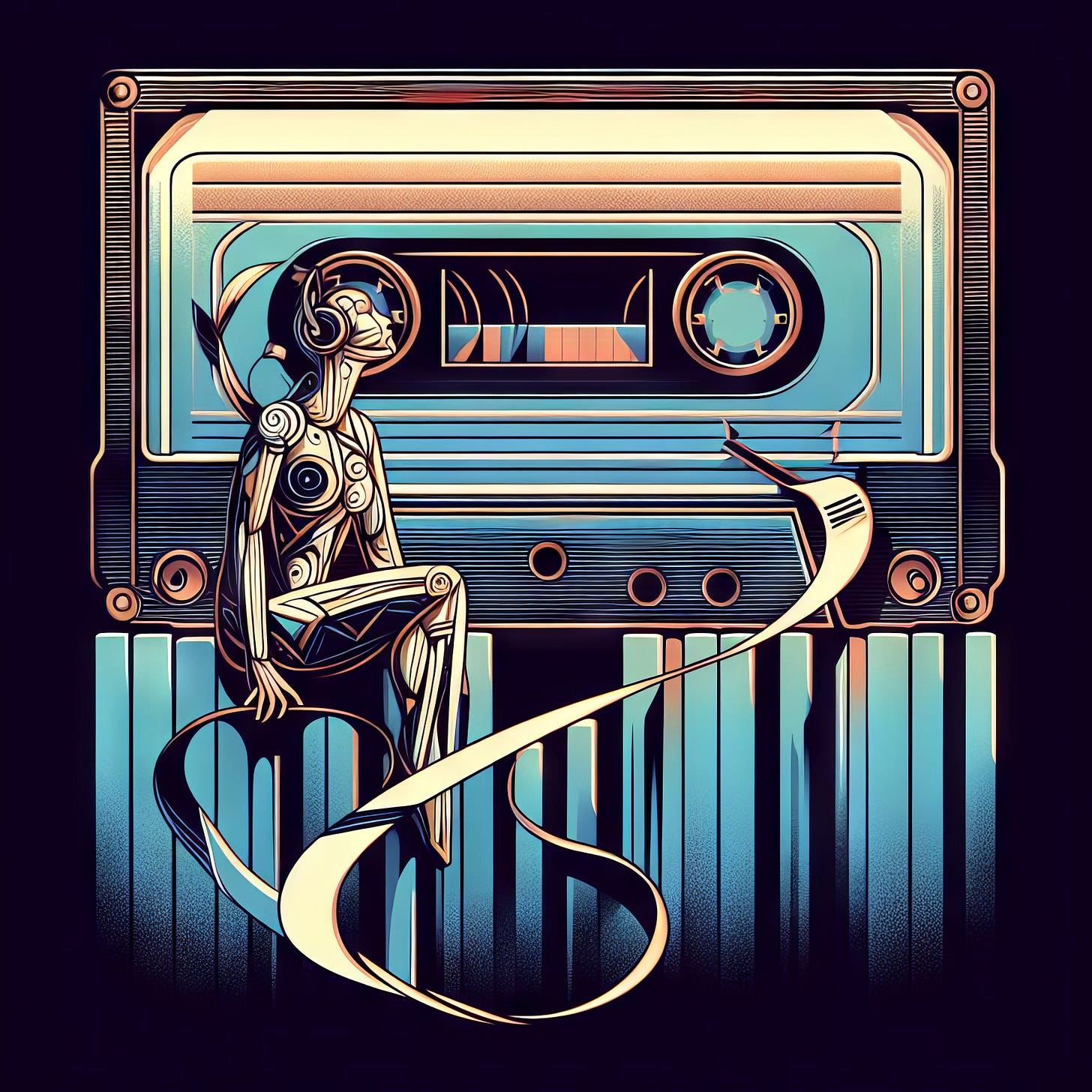
Outro
Perhaps it is the case that we actually don’t want to know the answer to the question of whether or not we have individual will. Perhaps the weight of having our life experience perfectly weaved out of a proverbial loom is too much to bear without the illusion of control over your environment and its outcomes. I can understand if this is the case. We can all empathize.
However, I’d argue that even if it’s true that we are doing what we can’t avoid doing, the gist of the experience lies not in being able to control the narrative up to the atomic level - but rather, to flow and play within the greater patterns weaved by this great loom. It’s as much fun to be the controller of the vehicle as it is to be the vehicle itself, it seems: immersed life happens to both of them across different perspectives.
It’s perhaps a useful way of seeing that even if the facts of life are irresistible forces and we’re deterministic pieces of a virtual game of Tetris, there is a measure of delight to be taken out of it; of surprise. Because even if we are obligated to do what we do irrespective of our will, our inability to see the future means that we are expectant of the next step, the next level: whether we’re the in-game character or not. To be able to see play is the experience and meaning of it all. Even if I’m merely a Sims character being simulated by a future version of humanity, I am given life through being part of it, and I feel something that I perceive to be real. It’s a worthy fight to learn this concept - to truly make it a part of ourselves.
I still struggle with it a bit, but as this essay shows, I also like to play with it.
Keep being curious, keep thinking, keep being human,
Francisco
If you enjoyed thinking about these things with me, feel free to subscribe, and please leave a comment. You can also bring the conversation wider:
I am aware of my privileges, and I’m also aware that there’s enough existential weight to life that it can be spread around and still be enough to drive those privileges into the same relative mud. It seems ludicrous to believe that internal impact - experience - can be accurately quantified across all its elements: biological, social, intellectual, and how they relate to time. And since it can’t be quantified (at least through the lens of a purely human-like biological system acting within our Universe), it is incomparable across experiences - there’s no pattern that neatly overlays another. This can be gleaned from how different life experiences lead very different people towards committing that same act of finality that is to put an end to one’s life. Pain and joy alike are both universal and personal, even if some measure of patterns can be extracted from it. Unfortunately, Determinism’s contribution to this matter is that there was no other way that could happen. Even if you changed the circumstances, you’d have to change them enough so as not to provoke this outcome - and your ability to change the circumstances is itself determined. It’s a circularly conceptual hellhole from which nothing positive emerges.
That genetic twins ultimately lead very different lives in the course of their existence (not counting the extreme minority that follow what seems to be the same virtual path on purpose, as per this New York Post bit) is telling. It suggests that genetics have less of an impact in behavior than we might think. It also suggests that any agency we can muster within a pre-determined and pre-existing environment - the constraints Determinism talks about - has more impact than we might think. Because if two beings with the same DNA pattern (and so, with lesser variability in their possible responses within a similar environment)
None of us truly needs reminding about that here, though.
Notice that I am clearly a Western thinker. My own examples show it.
Too soon here doesn’t relate to “before the person could contribute”. It translates to “before the absolute last possible moment for her to cease contributing to the tapestry of life”.
Game theory, fame and The Spectacle are absolute references of this powerful ability to alter the tapestry of life.
At least in the sense that even in a deterministic system, the “inevitable cascade of actions” requires that the preceding actions have actually occurred. A useful way of looking at this is thinking that every action is ultimately “limited” by its preceding action - the loom of life has to run you dry through your twenties before letting you grow into the you that has twenty more years of experience. Remember those videos of dominoes all touching one another in a determinist flow, leading towards a pre-determined outcome/image?
The deterministic view is a fringe one within academia, but unfortunately, it seems that most of its deterrents see it through a moralistic view and through its impact on human experience, rather than through the actual focus of whether it is or isn’t the fundamental truth.
Thanks for the “can’t avoid doing” bit that I apply here, Ram. I hope you and yours remain safe.
References to the work of Robert M. Pirsig and his “Metaphysics of Quality” will keep appearing within the work in The Human Ingenuity Feed, as I feel it truly is one of the most “cutting-edge” frameworks for understanding the world. The idea here is that the intellectual pattern corresponds to a higher level than the social pattern (that of agreed-upon knowledge and language and behavior). It’s like lava bursting above the surface of a volcano: it rises above the social pattern, either building it up at the edges or falling harmlessly in its mist.
I am cooking up an inkling that Pirsig should have considered another pattern besides biological, social and intellectual. It seems to me this fourth pattern is something relatively close to the concept of belief, and that it runs across all three levels, connecting them all and providing action. When it comes to biological life, and perhaps all life, if Integrated Information Theory is right, this belief can be framed as a drive that propels us from our pasts towards our future. I touch upon this idea of the human arrow here.
Of course, we now have to deal with the fact that sperm - and other flagellates, or those with tail-like appendages - have been caught breaking Newton's Third Law of Motion. It’s perhaps important to think about platypuses and other “casting” fails within what we can easily observe. Of course, there’s no breaking of Newton’s Third Law - it still applies mostly everywhere and underpins mostly everything. But there’s a quirk there, a dimension of our world it has seemingly failed to encapsulate. What that leads us to ponder about is what other things might it be missing? We’re always running with “modified”, supposedly fundamental theories all across academia, all the time.
This is where stoicism could come in handy, as it essentially relates towards having the ability to cope with life by being able to differentiate between what we can and can’t control. Do note that there’s an assumption of free will there as well: you can control things and outcomes, as well as your responses to things and outcomes. But it’s one that I feel is essentially useful for modern survival - although not so much that one slips into a lack of empathy towards the world and everything. Stoicism is utilitarian, in a way, and it’s perhaps too rationally cold - it’s to be used sparingly like a garnish; not as a main framework through which we understand life. And yes, Stoicism folds to Determinism: a Stoic would secretly die knowing there’s nothing he can control, because his focus is on the daily practice of discerning what is and isn’t so that he can dedicate time and energy accordingly. The stoic expects to be able to discern between the controllable and the uncontrollable; to remove that expectation is to remove the core element of attraction.
This is how we introduce the concept of Nick Bostrom’s Simulation Argument into the entire free will / individual will debate.
We explored this computational/informational idea of consciousness - in a way - in the newsletter issue “Thought Experiment: How Language Creates the World”.
As we’ve seen here, free will is inextricably connected with the concept of consciousness - they operate at the same fundamental level, like two distinct patterns occupying a single circle.
It’d be wise to think ethically about this before doing anything, however, and I’ve found that a framework of “minimizing suffering”, while subjective, is a good concept to keep around. Frame this somewhat around Sam Harris’ The Moral Landscape, and try to remove the prescriptive side of it. That’s exactly the framework I mean. And of course, work out the impact of a given product/invention before putting it out into the wild.




